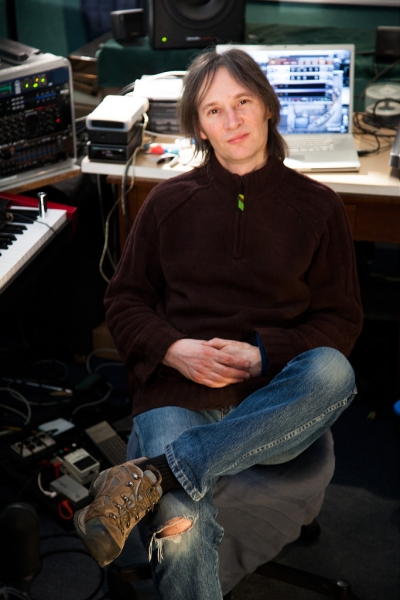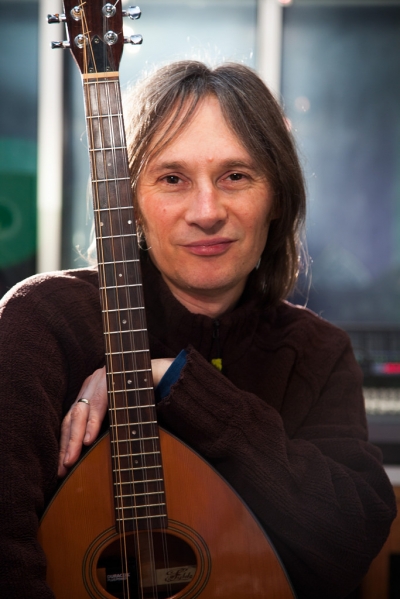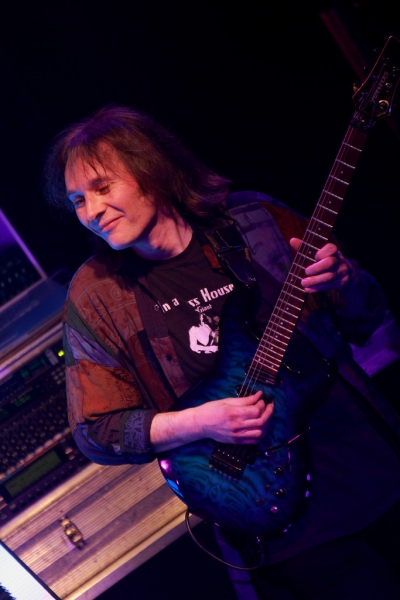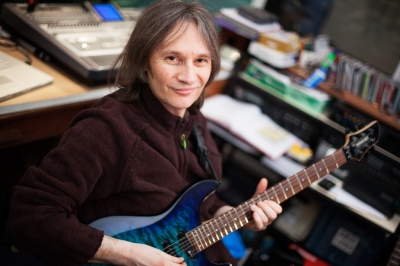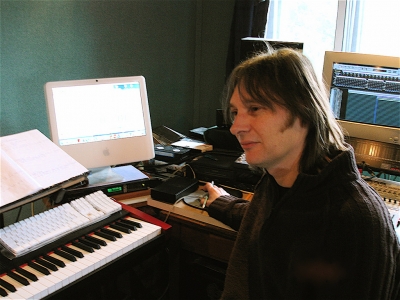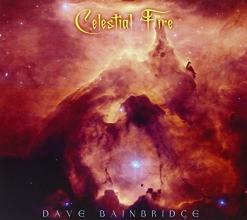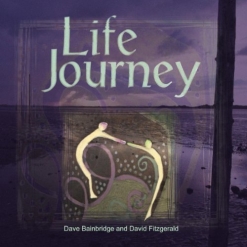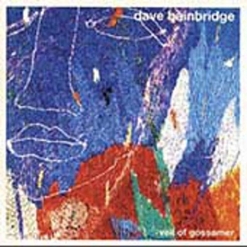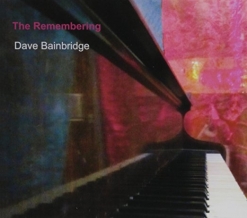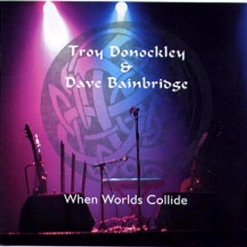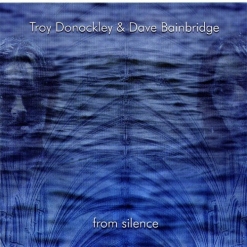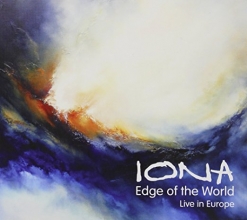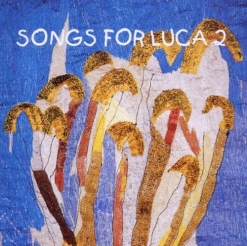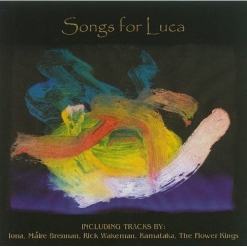DAVE BAINBRIDGE INTERVIEW by Mike Debbage
Marching to his own drum!!
For many of you the name Dave Bainbridge may not be a household name or for that matter the band Iona that he is an integral part. But whether it is as a solo artist or the anchor of the genre hybrid progressive, Celtic, jazz, faith driven rock band Iona one thing that is acutely obvious and that is Bainbridge writes and creates from the heart and not for lucrative gain.
Born in the blue collar north east of England, Bainbridge took up piano at the tender age of 8 only to add the guitar to his instrumental repertoire 5 years later. With early leanings toward progressive and jazz music the roots of these genres are clearly still heard through the eclectic recordings of both his solo work and the group Iona that he co-founded with the only other remaining member vocalist Joanne Hogg and the bands former woodwind player David Fitzgerald.
After a plethora of recordings in the 90’s on the contemporary Christian label Forefront the years since have seen the number of studio recordings diminish but the quality remaining unequivocally high. A total of 5 studio recordings and 2 live recordings occurred between 1990 and 2000. Since then to this current year we have only seen the band release 2 studio and 2 live recordings.
The lack of band recordings has not meant that Bainbridge has been absent from the musical scene. With now 3 solo recordings to his name the latest being 2016’s
The Remembering which is a collection of ambient solo piano recordings as well as multiple collaborations with former band members such as Troy Donockley and David Fitzgerald, Bainbridge has been more than busy. Most recently in the live arena has seen him touring as the piano player for the Strawbs as well as dates with his own band Celestial Fire.
Despite his busy life Dave Bainbridge found the time to speak with MainlyPiano.com about his past present and future.
MD: Your biography states that you were born and raised in the north east of England in a heavy industry town by the name of Darlington. With no offense to your roots (keeping in mind that I too was born in the same region) how did you manage to find your musical roots in jazz fusion and Celtic progressive influences?
Dave: Well, my parents were both musicians. My dad played the guitar and banjo and my mam played the accordion and organ. Various aunts and uncles were also musicians and my sister Maureen (8 years older) was a great singer and piano player, so music was always around at home. I would listen to all my sister’s albums from as early as I can remember. She was into The Beatles, Vanilla Fudge, Hendrix, Jethro Tull and many blues artists. She had the 3 album Woodstock Festival release and I’d often listen to that and especially loved Santana, Hendrix, Ten Years After and Crosby, Stills, Nash and Young from that album. I started classical piano lessons when I was 8 and when I was about 10, my sister joined a local rock band, who played Jethro Tull covers and their own material. They stored their Hammond Organ in our tiny front room and when everyone was out; I’d sneak in and play on it!
Music was a real passion for me and my friends - a way of escaping the boredom of school. We’d listen to all kinds of music and from the age of 12 I started going to concerts in the nearby big city of Newcastle - first with my sister and then with my older friends. There were always great, original bands to be seen - not the plethora of tribute bands that clog the concert listings these days. Tickets were relatively cheap too in those days. I saw many great bands, like Santana, Yes, Gentle Giant, Focus, Deep Purple, Pink Floyd, Gryphon, Refugee (with Patrick Moraz), Wishbone Ash, Earth, Wind and Fire, etc etc.
We’d listen to Radio Luxemburg, which had all kinds of great new music on. I remember first hearing The Mahavishnu Orchestra on there, from a live concert, and being blown away with the energy and virtuosity of their playing - so much so that I ran ½ mile to my friend's house to tell him about this new discovery!
Another friend started listening to more folk oriented albums and through him I discovered Alan Stivell, Boys from the Lough and the first great Celtic Rock band, Horslips.
MD: While many may be familiar with the guitarist Dave Bainbridge the reality is that you started on the piano. What inspired the switch? If you were only given one instrument to chose from which one would it be and why?
Dave: There was never a switch from one to the other. Since taking up the guitar, I’ve always played both instruments in equal measure. I was inspired to want to play the guitar through people like Hendrix, Richie Blackmore, John McLaughlin and Steve Howe - and many others. There was an emotional intensity about the electric guitar that I loved and I wanted to be able to play like my heroes! My dad taught me some of the basics, but mostly I was self taught on the guitar, so it was a different and freer experience to my more formal piano lessons - that sense of rebellion I suppose.
If I had to choose though, it would have to be the piano. I love the more complex harmonic possibilities the instrument offers and as I think of myself as more composer and improviser than soloist, I’d choose it because I find it easier to write on.
MD: According to your bio on the Iona website it appears that your very first band was named Exodus with a leaning towards the then progressive group Genesis. Another attempted band was the progressive leanings of Plan B. With Iona formation around the corner tell me about the musical influences that you brought to the Iona table?
Dave: I was only 14 when I joined a local group called Exodus. I went to the audition and played a bit of Keith Emerson and The Nice’s arrangement of “America”, and some Deep Purple riffs on this terrible, cheap reed organ. They seemed to be impressed and we started rehearsing, playing Deep Purple and Yes covers, which was quite ambitious for a group of 14-16 year olds! The group didn’t last long and after playing in a couple of other local bands I realised that to achieve my goal of getting into Music College, I needed to do some serious work, so for a few years I focused completely on my classical studies. I managed to get a place on what was the only jazz and contemporary music course in the country at that time. I wasn’t particularly interested in jazz at the time, but knew a few people who’d done this course and become successful artists, so I chose this rather than a straight classical music course.
Learning about jazz harmony and improvisation opened my eyes to a new and exciting world beyond rock and progressive music and I discovered some of the jazz piano greats like Chick Corea, Herbie Hancock and especially Keith Jarrett. I loved that Keith’s music straddled multiple genres.
Plan B was my first attempt at an original band right after leaving music college. It was a mish-mash of influences, including progressive, jazz and rock. The drummer Peter Fairclough is now a great jazz player and teacher, the guitarist Nick Fletcher is a classical guitar recitalist and composer and also now plays with Steve Hackett’s brother John. I was playing keyboards, along with my sister, who also sang. We had a great local bass player whom we drafted in for recordings. Unfortunately it was absolutely the wrong time to be attempting to launch this kind of band. Since punk and then the rise of synth pop, anything vaguely ‘progressive’ was regarded as old hat and try as we might, we just couldn’t get promoters to book us.
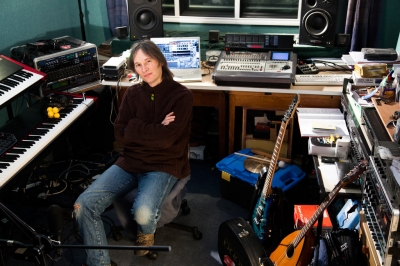
However, Plan B had many of the seeds of what would develop 7 or 8 years later into Iona. A female vocalist, a mixture of long, complex pieces, with vocal sections, some shorter more accessible songs, different atmospheres using multiple keyboards, improvised sections. The additional elements that eventually galvanised Iona and gave it such focus were the discovery of the rich Celtic Christian Heritage in our islands, the inspiration of beautiful landscapes, especially of the islands of Iona and Lindisfarne and the added folk element, which seemed to connect back to a time when music was more deeply intertwined with culture and spirituality.
When David Fitzgerald and I started discussing ideas for the new project that would become Iona, we were united in our love of similar musical genres, progressive music artists like Yes, folk influenced artists such as Clannad, world music artists like Peter Gabriel and singer songwriters such as Joni Mitchell. We did one concert as a duo, then quickly realised that to really fulfill our musical vision, we also needed a female singer who ideally would also be an accomplished instrumentalist. We’d already worked with Joanne on another project and realised that she’d be perfect for the new project, being a great singer and songwriter and very good pianist and guitarist.
MD: 1988 was the year that Iona was formed which also included your current founding member Joanne Hogg and within 2 years the self titled debut Iona was released on the contemporary Christian record label Forefront. Why this label?
Dave: It was actually 1989 that we formed Iona. Things developed very quickly. The first (duo) concert was in June and the first performance with Joanne was in August 1989 at Greenbelt Festival. On the strength of this first concert with Jo we were immediately offered two record contracts, one from Word Records in the UK and another from a company based in The Netherlands. We went for the Word records contract because we already knew their A&R guy and felt he was really into the music and could see a vision for it. He also understood that our Christian faith was an integral part of who were and our music. We started recording the first album later in 1989 and it was released in the spring on 1990. When it came to distributing the album in the USA, Word suggested Forefront as they were a new, dynamic label and the people who were in charge loved our album and were prepared to invest in it, in advertising etc.
MD: What were the advantages and disadvantages of being connected to a Christian label?
Dave: Since the beginning of Iona, our vision was that the music had the power to touch anybody, regardless of their beliefs. Over in the UK we would play the regular mainstream club circuit and mainstream festivals (including Glastonbury) as well as Christian organised events - it didn’t matter to us. We tried to avoid being labeled a “Christian” band as that would create preconceptions about how we might sound and act. Over in the UK, by the third album we had distribution through BMG, a big mainstream label, as well as through Word’s Christian outlets, and were becoming known in wider musical circles, so the albums in Europe were available widely. To start with Forefront was great and managed to get our albums distributed quite widely, getting reviews in publications like
Billboard. They had to work harder to build interest beyond their regular Christian network, but this was all good at the time.
MD: The first decade resulted in 5 studio recordings and 2 live recordings within 10 years which is a tremendous recording rate. While there was no dip in quality was this a requirement of the label? Did they place any limiters on the type of music you were to record?
Dave: There were no requirements to hit any release deadlines. It was a very creative period and we had a lot of music to get out! Word (and then Alliance) always gave us a free hand in what material we released. However, by the time we started recording Journey Into The Morn, Forefront had a bigger stake in the band financially, and started suggesting changes to lyrics to make them more palatable to certain Christian Radio stations. Of course we didn’t change anything, but it was around this time that we first started discussing going independent and setting up our own label.
MD: Iona is a difficult band to categorize even on the open musical scene. How difficult was it to market the band in the rather restrictive Christian market place?
Dave: Actually what we were doing really seemed to resonate with many Christian listeners, especially in the USA. The connections within the music and lyrics to something ancient, to the roots of the Christian faith in the UK through stories of the early Celtic Christian saints, such as Columba, Aidan and Brendan struck a deep chord with many Americans whose family origins were from the British Isles. The ideas of the Celtic Christians from the 4th to the 9th centuries were based on a deep respect for nature, of seeing God’s hand at work in even the most mundane tasks, of a simple lifestyle immersed in the presence of God. It seemed a far cry from much of the commercial Christian music of the time in the US. Some people didn’t get it, but others have been impacted deeply by the music and lyrics over the years.
In the UK we were more concerned with getting the band known outside of the (much smaller) UK Christian music scene, which we managed to do quite successfully.
At that time in the UK we’d had 10 years of Margaret Thatcher’s Conservative government, which thrived on ideas of wealth and materialism for those who worked hard, whilst at the same time disenfranchising a whole swathe of the blue collar workers by decimating the manufacturing industries. This materialistic ethos seemed to be apparent in much of the church as well and it was as if we were being shown an alternate, more real and grounded version of the faith, with the example of our forefathers.
MD: Despite many of your early recordings being available via Forefront with the exception of possible your most commercial recording Journey Into The Morn finding your recordings in the USA was still challenging. Any idea why?
Dave: Journey into the Morn was available on Forefront. We also managed to get distribution for that album on EMI in Canada, which brought it to a wider audience, especially via its mail order arm. The USA is a very big place and when all is said and done, we have never been a mainstream pop act, so we’ve never enjoyed the huge financial backing that more major artists have had. In the UK and places like Japan, thanks to a very enthusiastic distributer, the albums were in the major store chains and in the folk or rock sections, not consigned to the Christian music sections (I doubt you’d even find one of those in a Japanese music shop!).
MD: You formed your own label Open Sky named after your recording studio. What was this transition period like? What are the advantages and disadvantages of being at the helm of the entire operations?
Dave: Actually the label came first, then the recording studio, about 4 years later. In 2000, when we were about to release the album Open Sky, we got a letter from Forefront, saying exciting things were afoot. By this time the people who’d initially signed us to the label had left and they had a new bunch of young guys in, whose primary aim was to get Christian artists into the mainstream music charts.
So, in the letter they said that they’d sold the company to EMI, who in turn had sold it to Time Warner and that this would be a huge opportunity for all Forefront artists. A few months later they sent us another letter saying that we no longer fitted their remit and that they were focusing on younger, more chart oriented artists, so they were terminating our contract! So Open Sky was our last album to be distributed by them and the decision was made to form our own label.
Soon after this the rights to the first 3 Iona albums reverted to us and we had the idea to do The River Flows limited edition box set, which included these albums (with remixes and remastering) plus a 4th disk of previously unreleased material. This was on our own label, but with distribution from companies we already had links to. It was hugely expensive to make - with its beautiful 80 page 2x cd size booklet and sumptuous artwork, but we managed to break even within 6 months on that project. It had taken 10 years to break even on the initial releases of the first 3 albums (with the record company making a mint!) - such was the poor record deal we had!
There was obviously a big learning curve and we didn’t have the budgets for advertising that a label has, but it seemed better to be selling smaller numbers and actually making some money, than selling a lot with little income.
MD: One of your early projects was the intensely personal project Songs For Luca. Care to share a little how this got off the ground and the inspirations surrounding it?
Dave: Our son Luca, who has just turned 19, has autism. When he was 5 we started a great home based, one to one program with him called Son-Rise, which proved to be very successful. There were a lot of support services to pay for: home visits from a Son-Rise teacher, conferences, regular video feedback sessions, transatlantic phone calls, the building and equipping of a purpose built playroom for the program etc. We also wanted to go over to the Autism Treatment Centre, Son-rise’s headquarters in Massachusetts, for their week long Intensive programme, where specialist child facilitators would work with Luca and us and we’d get to see them at work.
All this was expensive, and my wife Debbie had the idea to ask our musical friends if they’d like to contribute to an album that we could sell to help raise funds for Luca’s Son-Rise program. The response was overwhelming and the 2 cd Songs for Luca album was born. Voiceprint, our distributors even paid for all the manufacturing costs. This helped us to fulfill our dream early in 2005 for the whole family (plus a friend to look after Luca’s younger sister Evie) to go to the US for the intensive course - and it was an amazing time.
Soon after this we also released Songs for Luca 2 to help with our ongoing Son-Rise costs. The second 2cd release had loads of new collaborations exclusively recorded for this release. We’re very grateful to everyone who contributed to the two albums - artists like Rick Wakeman, Oliver Wakeman, Moya Brennan (Clannad), Roine Stolt, The Flower Kings, Troy Donockley, Joanne Hogg, Nick Beggs, Mae McKenna, Phil Keaggy, Mostly Autumn, David Fitzgerald, Nick Fletcher, Martyn Joseph, Emmett Chapman (inventor of the Chapman Stick), Frank van Essen, Iona and many others.
MD: You also released your first solo album
Veil Of Gossamer in 2004. It featured several band members of Iona. How did this solo project differ from the band work and what compelled you to release your own music?
Dave: One of the reasons for forming Iona was so that I would have an outlet for the music I was writing. However, in any band there is always, understandably, an element of compromise as you’re part of a team effort. By the end of 2002 I‘d amassed quite a bit of music that I felt would be best served being released as a solo project. Our distributers Voiceprint liked the idea and helped with the funding and manufacturing costs. Joanne had her second child in 2003 and was on maternity leave from the band, so this gave me the space needed to work on the project.
There are many obvious musical connections with Iona on the album - having written or co-written much of Iona’s music, that’s a big part of my musical personality. However, I enjoyed the added freedom to expand on certain ideas and themes and the space to include a few acoustic guitar pieces and more guitar solos! You can probably hear a few more of my early progressive and folk influences on the album than would be present on an Iona album.
Joanne’s break from the band also enabled Troy and I to do some duo concerts and to release an improvised performance recorded in the incredible surroundings of Lincoln Cathedral (building commenced on this in 1088 and for over 200 years it was the tallest building in the world!).
MD: Six years after the release of Open Sky, Iona finally got back into the recording studio in 2006 and released The Circling Hour. It was the exact same line up with Troy Donockley, Frank Van Essen, Phil Barker, Joanne Hogg and you. Was their rust to dust or did it just ebb and flow?
Dave: We had almost two years off from live concerts but started working together again late in 2004 and it was great to be back together. We’d been doing some gigs and working on new tracks throughout 2005, in various writing configurations, so there wasn’t one sudden, big get together. Now that Frank and I both had recording facilities, we didn’t book an expensive studio to record in - without any record company backing that wasn’t possible now. So Frank recorded his drums at his home studio and much of the rest of the album was recorded at my place, with some recordings done on location at Joanne’s house. There were one or two disagreements concerning a few of the tracks that were mooted for the album, but eventually left off, but overall I think we came up with a strong album.
On the recent Celestial Fire band tour I did we played the suite from The Circling Hour, ‘Wind Water & Fire’ which is the first time it’s ever been performed live and it went down really well.
MD: After collaborating twice with Troy Donockley in the consecutive years of 2005 and 2006, the Iona 2008 recording Live In London represented his last recording with the band as one year later he announced his departure. What happened?
Dave: The Live in London concert was actually recorded at the end of 2004 and released on DVD in April 2006, though the 2cd version came out in 2008, so The Circling Hour was really Troy’s last album with the band.
Troy was getting increasing offers to tour and record with other artists and by this stage, due to family reasons, Iona could only commit to very short runs of gigs with long gaps in between. So he couldn’t really turn down a lucrative 6 or 7 week tour with someone just to do 2 or 3 not very well paid Iona concerts. That, and Troy’s increasing uncomfortability with the band’s Christian ethos (Troy is not a Christian), and offers of work with the increasingly popular Finnish band Nightwish led to his inevitable departure. I totally understood this and really miss his input, as we were from very similar social backgrounds and loved the same music. There was a chemistry between us when we played together that was unique and very powerful. We’re still in touch and I played with him at the wedding of Bryan and Olivia from the band Mostly Autumn last year (Steve Hackett was in the audience!).
MD: As much as Donockley’s uilleann pipes influenced the early sounds of Iona, it is very apparent that he has been ably replaced by the jazz influenced Martin Nolan. How was the transition?
Dave: I think it was a bit of a shock for Martin initially! In fact, although Martin has played many different genres of music, his background is firmly rooted in traditional Irish music. The complex Iona pieces, with lots of time signature changes and quite tricky, fast passages were initially a big challenge for him, as they would be for anyone! However, he has coped admirably and his great, outgoing personality and his ability to play the pipes standing up (no mean feat!) has really brought a new vitality to the live performances.
MD: Iona’s last recording to date was in 2013 courtesy of the live recording Edge Of The World: Live In Europe. To this day many of your early compositions from the Forefront days continue to be featured in the band’s live performance. How is it that Iona’s music has stood the test of time?
Dave: I think Iona’s music has a power and relevance that will still touch people for many years to come. Some of those early pieces have a timelessness about them, because they touch something deep, either melodically, lyrically or both. Just a couple of days ago I received an album called Celtish, recorded by some friends. They included a beautiful new arrangement of an Iona track called ‘Bi-Se I Mo Shuil, Part 1’, from our Journey Into the Morn album. It really felt like this is one way that the music can continue to be heard, with other artists covering the music, bringing them to a new audience
MD: As recent as 2014 you managed your second solo effort entitled
Celestial Fire which was very different to the original solo album. And while there are parallels to the Iona soundscape there is no doubt there is a little more fire found on this solo recording. What inspired this change?
Dave: I wanted to do an album that was directly inspired by some of the artists I listened to when I was starting out as a musician and who were a big influence in shaping my musical direction. Not a tribute album, but new music that would build on the foundations of the old, so to speak! I also wanted to include some musicians who are currently at the top of their game in the current ‘prog’ scene and who would really understand where I was coming from with this music. I’m really happy with how it turned out. Sometimes with Iona, there have been times where I’ve felt like things could have gone further in a particular direction, but the group ethic has prevented this, which is of course fair enough. With the solo albums I can follow completely my own muse.
MD: Celestial Fire also included a reunion with some of Iona’s former band members most notably Troy and David Fitzgerald. How was that experience?
Dave: It was great. Troy recorded his parts at his home set up and sent them to me, but he was incredibly enthusiastic and supportive of the music. David came up to my studio and we had a great day recording his parts. David and I actually continue to work together on various recording and live projects from time to time and recently spent a week together in the Netherlands working on a big live project, so we still have that deep connection when we play and spend time together.
MD: Barely 2 years later you release your most daring recording to date entitled The Remembering that features your piano work not the guitar. Driven by ambient and improvisational themes how has this recording been received?
Dave: It hasn’t had a whole lot of reviews but those I’ve seen have generally been extremely positive, including a great and intelligently written one in the UK’s main progressive rock magazine Prog. I’ve had some great responses from people who’ve bought it. As releasing a solo piano album is new to me, a lot of the places we’d send promos for Iona or my more ‘progressive’ solo albums aren’t really relevant, so finding places to introduce this side of my playing to people is a new challenge!
It’s something I’d thought about doing for a number of years as I love improvising at the piano and have done since I was about 12, and that’s how a lot of my compositions are birthed.
The whole album is improvised, with only two tracks being improvisations around existing themes (from Iona songs). Sometimes I had an initial idea before I started just to kick things off, for example working around 5th intervals or 6ths, or starting with an arpeggio figure and developing that. Other tracks were more spontaneous and themes would develop and emerge as I went on, or be more like soundscapes, evoking a particular mood. I’ve always loved music (and paintings) from the Impressionist period, from the stark simplicity of Eric Satie’s music (works like Socrate and some of his lesser known piano pieces), to the more flamboyant works by Debussy and Ravel and I wanted to include something of this idea of capturing a fleeting moment in time. We have a lovely framed photograph at home taken in the 1920’s titled ‘A Memory of Avignon’. It’s of some people sitting outside in the summer sun drinking tea or coffee and is so evocative of a world now long gone. Music has the ability to conjure these memories in such a powerful way.
With the two Iona pieces, I really wanted to get inside and to expand upon the themes behind the songs, so I firstly spent some time listening to the original tracks and reading the lyrics (one was a vocal song and one was originally an instrumental), to see if there were new aspects I could bring to the harmonies etc
MD: In the live arena most recently you have toured with The Strawbs stateside and returned to the UK to tour as the Celestial Fire that features your solo and Iona work. How different were these events?
Dave: It was a real honour to be asked to join the Strawbs for all their electric band gigs, as their keyboardist. They have written some great songs over the years and of course with previous keyboardists including Rick, Oliver and Adam Wakeman, Blue Weaver and John Hawken, I was in esteemed company. I first met singer/songwriter and main man Dave Cousins at a gig they were doing as the Acoustic Strawbs on the same bill as Carl Palmer’s band and Wishbone Ash. He’d already heard my playing with Iona and really liked it and we immediately got on famously.
Once we started rehearsing, I think he was impressed that I’d spent a lot of time listening to both recent live recordings and all the original album recordings of the set. After having done so I felt that some of the great original sounds on the recordings were missing from recent live recordings of the band and that I should try and really capture the essence of the original recordings. So I spent a long time on sound design, replicating those original, classic mellotron sounds as well as bringing something of my own atmospheric sound approach to the songs, and in some places beefing things up with rockier organ sounds. The response to the recent electric band gigs from diehard fans has been incredibly positive and people have appreciated that I have been respectful of the songs and those original sounds, whilst trying to introduce a modern spin where appropriate. We have a couple of gigs in a few weeks, then more extensive touring through March to May in the UK and USA next year.
Although there are some challenging things to play in the Strawbs set, the Celestial Fire band music is a lot more complicated. As well as playing keyboards, I’m also playing electric guitar and bouzouki (sometimes all on the same piece!) and talking in between songs. The amount of gear we have on stage is incredible! But it’s such a great band and on the last run of gigs in September it really felt like we were beginning to gel as a band. So I’m currently mixing the sound for a Celestial Fire live DVD/CD/download release, which I hope will generate a lot more interest in the band. It was recorded on our 2nd ever gig and since then the set has developed a lot, with less reliance on Iona material, but it should still be a good calling card.
MD: With so much going on in your professional life will there be any time for another recording from Iona in the new future?
Dave: At this stage I think sadly it’s unlikely that there will be a new Iona album anytime soon. The various band members have other life priorities these days and with the big changes in the music industry in recent years, it’s a lot harder to make a band like Iona work financially on a few gigs a year and to keep any sense of momentum going. But never say never as they say!
MD: Closing on a personal note both your work with the band and your solo material is engulfed in those things we cannot see. Clearly your faith in God is very important to you. How does your faith drive your music?
Dave: I think, to really touch anybody, an artist has to be really passionate about what they’re conveying; otherwise it comes across as being a bit false. That passion moves people and touches their hearts. My faith obviously informs my world view and has a bearing on what subjects I write about and how I approach them. There is however, a common thread throughout Iona’s music and my solo projects and that is a sense of wonder at this incredible gift of life that we share. It’s something we all have in common and can all relate to. It is the universal aspect of what we do. We experience the full gamut of emotions during our short time on earth and many times we’ve had the privilege of knowing that our music has been the soundtrack to people’s lives, both in their saddest and happiest moments. Just a few months ago I had the honour of improvising around two Iona themes at my beloved auntie’s funeral.
As a Christian I believe that when music or art touches a person deeply, it awakens something in our spirit that is often dormant or ignored at other times, like a world behind the song. That connection brings peace and hope, that earthly death isn’t the end of the story.
MD: If your ability to create music was taken away from you what would you do?
Dave: Definitely paint or draw. If I didn’t get into music college I was planning to go to Art college instead. It’s something I love doing but just don’t get the time to do much these days.
MD: If Iona is not in the cards what’s up next for Dave Bainbridge?
Dave: Various studio projects at the moment: finishing mixing the Celestial Fire band DVD, mixing a big live project by singer songwriter Adrian Snell (which includes full band and 60 piece choir and my Iona friends Frank van Essen and David Fitzgerald), recording guitars for the new album by prog band Lifesigns, mixing a 2cd project called Cronofonia for Mexican guitarist Pablo Patricio, practicing for the Strawbs gigs and hopefully arranging some more duo gigs with singer, multi-instrumentalist Sally Minnear and with the full Celestial Fire band, as well as writing a new album!
MD: Many thanks to Dave Bainbridge for taking the time to chat!
Dave: Happy to Mike!
Michael Debbage
November 2016

